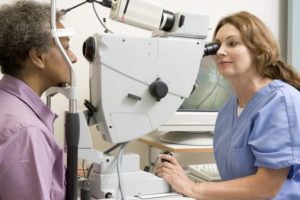
The researchers specifically focused on daily light exposure as a potential confounding factor because “progressive retinal ganglion cell death might lead to dysfunctional perception of light stimuli and consequent circadian misalignment with decreased nocturnal melatonin secretion.”
It is also suggested that glaucoma patients may be exposed to less daylight, which can limit the benefits they receive from daylight exposure.
The study involved 770 participants with a median age of 70.9. Both glaucoma and depressive symptoms were evaluated.
Depressive symptoms were found in 114 participants, and the glaucomatous optic disc was detected in 40 participants. Depression prevalence was seen to be higher in patients with glaucomatous optic disc, and the association remained even after accounting for daylight exposure.
There have been several other large American studies that have shown a link between glaucoma and depression, but this was the first to specifically look at daylight exposure.
The researchers suggest that additional research is needed to determine if light therapy may benefit glaucoma patients with depression.
The researchers concluded, “It remains uncertain whether bright-light therapy is effective for improving mood status in patients with glaucoma; thus, further interventional studies are needed to test the effectiveness in clinically diagnosed patients for glaucoma.”
Also read: